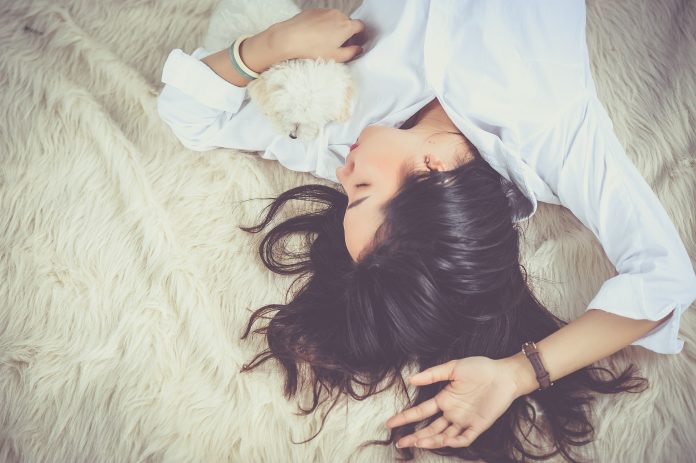What is Deep Sleep
Also known as slow-wave sleep, deep sleep is associated with the slowest brain waves during sleep and occurs in the third stage of sleep. During deep sleep, your brain waves, breathing, body temperature, and heartbeat reach their lowest levels. About 13-23% of your total sleep is deep sleep which roughly makes up to 62 to 110 minutes in an 8-hour sleep. It is that stage of sleep that you need for waking up fresh in the morning. However, as you grow old, your deep sleep decreases, and you may only get a half-hour of deep sleep or non at all as you go over the age of 65. However, deep sleep music might help individuals with this.
Why is Deep Sleep Important For You?
There are many physical benefits related to deep sleep as a variety of essential body functions take place during this sleeping stage:
Here’s what happens to your body during slow-wave sleep:
- Your body cools down, and it may retain less heat while conserving energy.
- It is a chance for your body to recover as you use less energy during this stage.
- It strengthens your immune system and helps vaccines work in your body.
- It lowers chemicals that cause inflammation while increasing blood supply to muscles.
- It is vital for the consolidation of memories, and it is also the time when the brain detoxifies.
- Pituitary glands secrete important hormones during deep sleep, which are important for the development of the body.
If you struggle to achieve this stage of sleep and wake up tired or lazy, you might wanna try your luck with music.
The Affect Music Has On Sleep
People with insomnia or sleep disorders usually suffer from fatigue, poor daytime performance, and anxiety. They might try all types of remedies, from meditation to even pills, and no doubt, most of the time, these methods work. However, these remedies don’t need to work for everyone, but one technique commonly does the trick and its music. According to the National Sleep Foundation, music directly affects our sleep, specifically on our parasympathetic nervous system, as it is responsible for helping our body prepare for sleep.
Further research by the foundation showed that young adults experienced significant improvement in their sleep quality when they chose to listen to classical music as an option to help them fall asleep. The results were even better for older adults who slept longer, better, and faster when they listened to 45 minutes of relaxing music before bed. They also discovered that soft music such as jazz, classical, or folk music with beats per minute between 60 and 80 worked best for their research. Another sleep expert, Dr. Neira states the benefits of listening to white noise before sleeping as a great way of sleeping better.
How Music Improves The Quality of Sleep?
Music is a powerful tool to simulate different responses both mentally and physically from people. Just as some music instantaneously makes your body move, the right type of soothing music can also aid deep sleep. For instance, we know for a fact that gentle rhythms, humming, and lullabies help infants to fall asleep. Luckily, music has more or less the same benefits for peoples of different age groups. In one study, participants with symptoms of insomnia played music of their choice before going to bed for ten consecutive nights. Results showed a significant improvement in their sleep quality as before their music routine, it took between 27 to 60 minutes to fall asleep, and with music, it took between 6 to 13 minutes. This proves that music not only helps in sleeping faster but improves overall sleep efficiency and consistency.
The Right Kind Of Music To Stimulate Deep Sleep
We have established that music helps with deep sleep, but what type of music specifically? There isn’t a clear consensus about which genre of music best helps stimulate deep sleep. However, some studies suggest that people’s musical preferences have the most effect on their sleep. Several studies support the fact that the music’s tempo and speed have a lot to do while choosing music for falling asleep. Slow tunes such as pink noise or white noise, classical, and sometimes folk music are best suited for making a relaxing playlist.
The best deep sleep music is the one that has no words. You don’t need to listen to music that stimulates emotions, whether positive or negative, in you. Remember, you aren’t trying to evoke any strong emotions when you are trying to sleep. You are doing the opposite: to clear your mind of all the thoughts and prepare your body for sleep. Therefore, it’s best to choose something like “Blue in Green” by Miles Davis or Macroni Union’s Weightless. You can even find different “deep sleep playlists” on Spotify such as the Night Rain Playlist that is highly soothing. Here are a few music choices that you can listen to for a good night’s sleep:
- Morning Tide (Wildlife Sound Recordings)
- Pebble Beach Waves (Shoreline Sounds)
- Rain Downpour (Unhappy Campers)
- Panning Waves (Weather FX)
- Cabin Noise Focus (Crafting Audio)
- Dozy White Noise (Dozy FX)
- Calm (Shibuki)
- Beyond The Trees (Made Of Gold)
- Sonhando (Nessa Maneul)
- Hovering (Judithe Abelsen)
- Cartography of Water (Beautiful Storms)
- Turndown Service (Adeline Verver)
- Natural Sounds of Nature (Harmless Harmonics)
The above music and more will definitely help you with a lasting deep sleep. However, make sure you are not using earbuds or headphones for this purpose. They are not only uncomfortable, but you can also hurt your ear canal. Instead, try using a Bluetooth speaker or pillow speaker. Also, don’t use phones or a screen for listening to music because blue light from your devices will prevent you from sleeping.
CONCLUSION
Many studies support the fact that music affects our sleep and listening to it before bed can improve overall sleeping efficiency. Having the recommended amount of deep sleep is very important because it helps with many bodily functions and promotes growth. Therefore, if you aren’t a deep sleeper, then you can take refuge in soothing music to help you fall asleep faster. You can choose any type of music you prefer. However, make sure it has a slow beat, is without words, and is calming.





















